
Someone I was advising recently said, “I feel my demons are stronger than I am.” I couldn’t lie to him. I said, “You know what? I think you’re right.” I’ve been in the same situation before. For many people, dealing with difficult negative emotions feels overpowering. This is very often a correct assessment; feeling helpless in the face of problems often comes from not cultivating the proper skills needed to confront them. People know deep down that they haven’t equipped themselves with the skills needed to deal with certain emotions and events, and they punish themselves for it. Instead of punishing ourselves, though, we can learn to build a stronger mind.
If you want to fight a dragon, you have to arm yourself. You can’t go out butt-naked with no armor or weapons and expect to win. To do so would be foolish. Even if you believe in your innate self, there are things you can do to optimize your daily functioning. You can’t just suddenly decide to triumph over your difficulties in the same way you can’t just suddenly decide to become a heavyweight boxer and compete. Cultivating strength requires work, and even when it feels impossible it’s always time well-spent.
When you feel your demons are stronger than you, you’re probably onto something. If you continue to feel helpless and sorry for yourself, you let the problems get stronger while you stagnate. But if you use this sense of helplessness to cultivate inner-strength and courage, you’ll overcome them. The key is to direct this energy inward. Meditate. Exercise. Work on yourself. Build the confidence and gusto required to rise above your mental baggage. Recognize the absurdity of allowing concepts to bring you down. This is one of the core lessons of Zen— what you think is not real. Thoughts are all abstractions. We shouldn’t take them so seriously. Latching onto external concepts and feeling disappointed often makes people feel like the world is crumbling in on them. This feeling of dread is truly difficult. But only through conscious work and practice can we overcome it.
There’s no magical solution to deeply-rooted problems and concerns, but if you do a little work each day to make yourself a more wholesome and rounded person, you eventually build the strength to confront your demons when they come about. This is a lifelong journey and there are always surprise rewards along the way. The key is to stick with it, to practice your best practice every day and not to give up out of disappointment or disillusionment.
It’s the nature of organisms on Earth to adapt. Doesn’t matter if you’re a moth or an advanced mammal; over time you’re either going to change or die out. This is basic scientific theory but can be also used metaphorically to understand daily life. The following interpretation isn’t to be confused with ‘social Darwinism’, but instead should be seen as a simple natural analogy.
The crux of this is “humans adapt”, not just on the large scale of base physical or psychological evolution but in the simplest ways in every moment. We adapt to everything. Single people adapt to relationships. Poor people adapt to sudden riches. Rich people adapt to sudden poverty. Nations and races adapt to their geographic locations and environmental conditions. Humans as they exist today vary vastly in appearance and background— the result of millions of years of collective evolution on various planes. On a day-to-day level we are constantly evolving in more nuanced ways. To peer into this process and reflect upon it is to recognize the power of both the individual and the community to foster positive behaviors and traits.
Returning to basics: in a very fundamental universal sense, change is the way of the world. There is no moment that is the same as the moment before it. You are a ‘different’ person at the end of this sentence than you were at the beginning. And yet beneath all of these environmental and sensory changes is your inborn sense of self— this is what I like to refer to as the spirit. This never changes. It only becomes more or less visible depending on how closely you’re paying attention.
The spirit is what exists in every person beneath endless layers of personal experience, cultural conditioning and conceptual chatter. It’s your fundamental being. It’s also what makes you aware of being. And in this sense it transcends being alive. I believe this is the root of religious theories of God and the afterlife. The spirit as felt during meditation and other deep religious experiences is perceived as being above and beyond the self because it is. It doesn’t exist in the physical realm and this is precisely what makes it feel so transcendent. The surface-level beliefs you have about who you are, even down to your family, values and background, are still not who you really are. Underneath all this is a place free of concepts or influence.
This is important to remember when we think about change. When I say that you change in every moment, you may interpret that as some sort of fundamental change. People often refer to their past and say, “I was a different person then.” This is only partially true. In reflecting daily on how shallow our interpretations of self often are, we remember not to let these false notions impact the decision-making process. If someone asks you who you are and your first instinct is to talk about your career, your family or your goals, it’s time to dig a bit deeper.
That isn’t to say that you should make the conversation all weird and spiritual— this is an internal process. You can say one thing and think another. There’s no real need to share information about your ‘true self’ with others. Merely reflecting within yourself and trying to peel away false layers of identity lets you find a certain peace. This peace will emanate and put others at ease. It will make you more charismatic, since you begin to identify with your deep spiritual self rather than surface-level adornments. There’s no need to communicate it directly; it communicates itself through a shift in motivations, actions and thought processes.
Most people treat themselves like a fancy car with a neglected engine— they take care of the surface and maintain appearances but are afraid to pop open the hood and work on what’s really important to their deepest functioning and purpose. Meditation is popping open the hood. It lets you see what might initially appear to be “the ugly truth” and then slowly and methodically rid yourself of the grime and gunk that hold you back. It’s a degreaser.
If you choose to meditate regularly, over time, when you think, “Who am I?” you won’t say, “I’m a Certified Public Accountant with a 3.8 GPA, $300,000 in the bank, a wife, two kids, 3 cars, a house and a dog,” but, simply, “I am.” Your essence is who you are stripped of all materials, all physical matter and all cultural conditioning. That doesn’t mean you’re supposed to throw your material life away and go wander the forest. Some people misinterpret Zen and think they have to become monkish or deny life. I advocate the exact opposite. Live your life fully, work hard, cultivate greatness, do whatever you want, but with this deeper awareness that you are not anything you do, have, or achieve. You simply are. And, most importantly, recognize that you can only identify with this inner-strength and benevolence to the extent that you’re willing to take some time each day to quietly reflect on it. In doing so, you really do transcend.
This is real adaptation. It’s a remedy to most modern problems. It’s recognizing your spirit as your center rather than things outside yourself. Doing that is like recognizing Pluto as the center of the solar system. How can external orbiting things possibly be your essence? You are your own essence! To misinterpret this fundamental truth is going to cause some problems. Meditation helps you get it straight.
 Charlie Ambler is the creator of The Daily Zen and @dailyzen on Twitter. He began the site in 2008 as a way to chronicle his study of Zen and practice of meditation. He is currently working on raising enough funding to work on Daily Zen full-time and is also writing a book about Zen practice and contemporary life. Charlie live in Greenpoint, Brooklyn and enjoys playing drums, walking, and petting other peoples’ dogs. You can support his work by clicking here.
Charlie Ambler is the creator of The Daily Zen and @dailyzen on Twitter. He began the site in 2008 as a way to chronicle his study of Zen and practice of meditation. He is currently working on raising enough funding to work on Daily Zen full-time and is also writing a book about Zen practice and contemporary life. Charlie live in Greenpoint, Brooklyn and enjoys playing drums, walking, and petting other peoples’ dogs. You can support his work by clicking here.





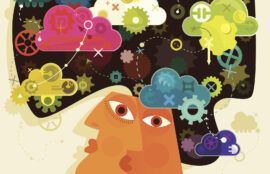
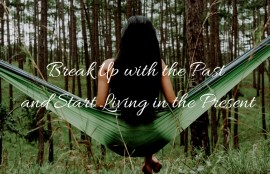

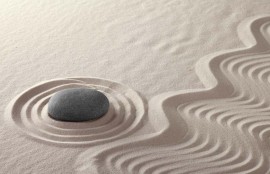

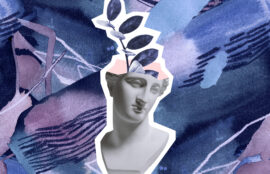
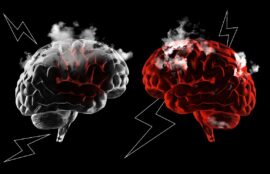

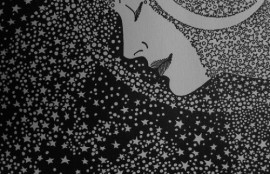
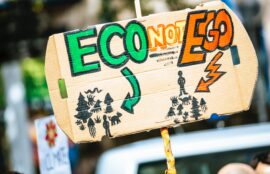

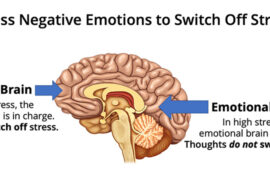
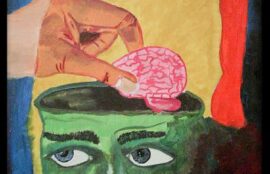

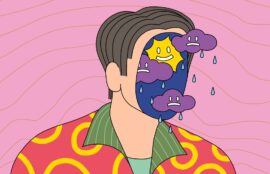


Sorry, the comment form is closed at this time.